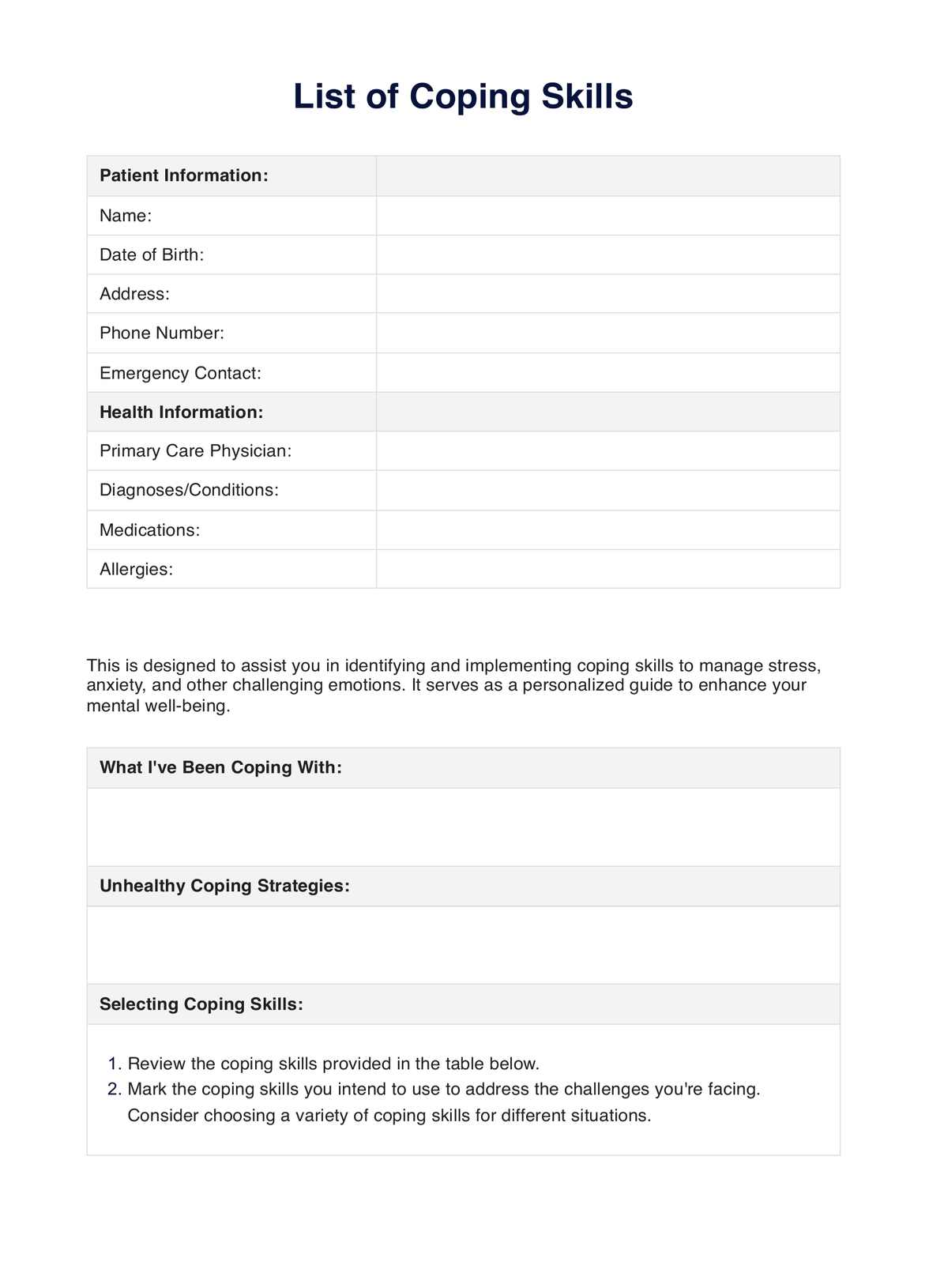A List of Coping Skills provides a variety of strategies, from deep breathing to mindfulness, offering practical help to navigate and alleviate stress.

List of Coping Skills PDF
Guide clients in dealing with uncomfortable emotions by utilizing personalized coping strategies. Download the List of Coping Skills PDF for adequate support.
Use Template
List of Coping Skills PDF Template
Commonly asked questions
The flexible list allows you to personalize and choose coping strategies that best resonate with your needs and preferences.
Revisiting and updating your coping skills regularly is recommended, ensuring they remain relevant to your evolving challenges and emotional well-being.
EHR and practice management software
Get started for free
*No credit card required
Free
$0/usd
Unlimited clients
Telehealth
1GB of storage
Client portal text
Automated billing and online payments











